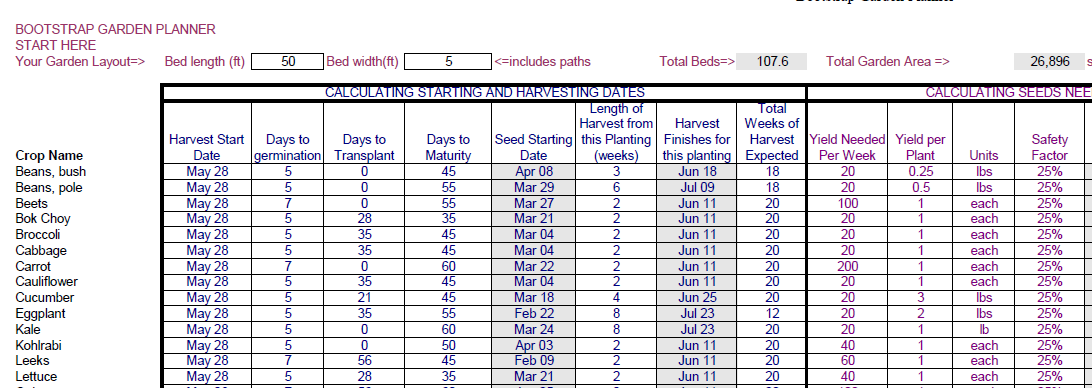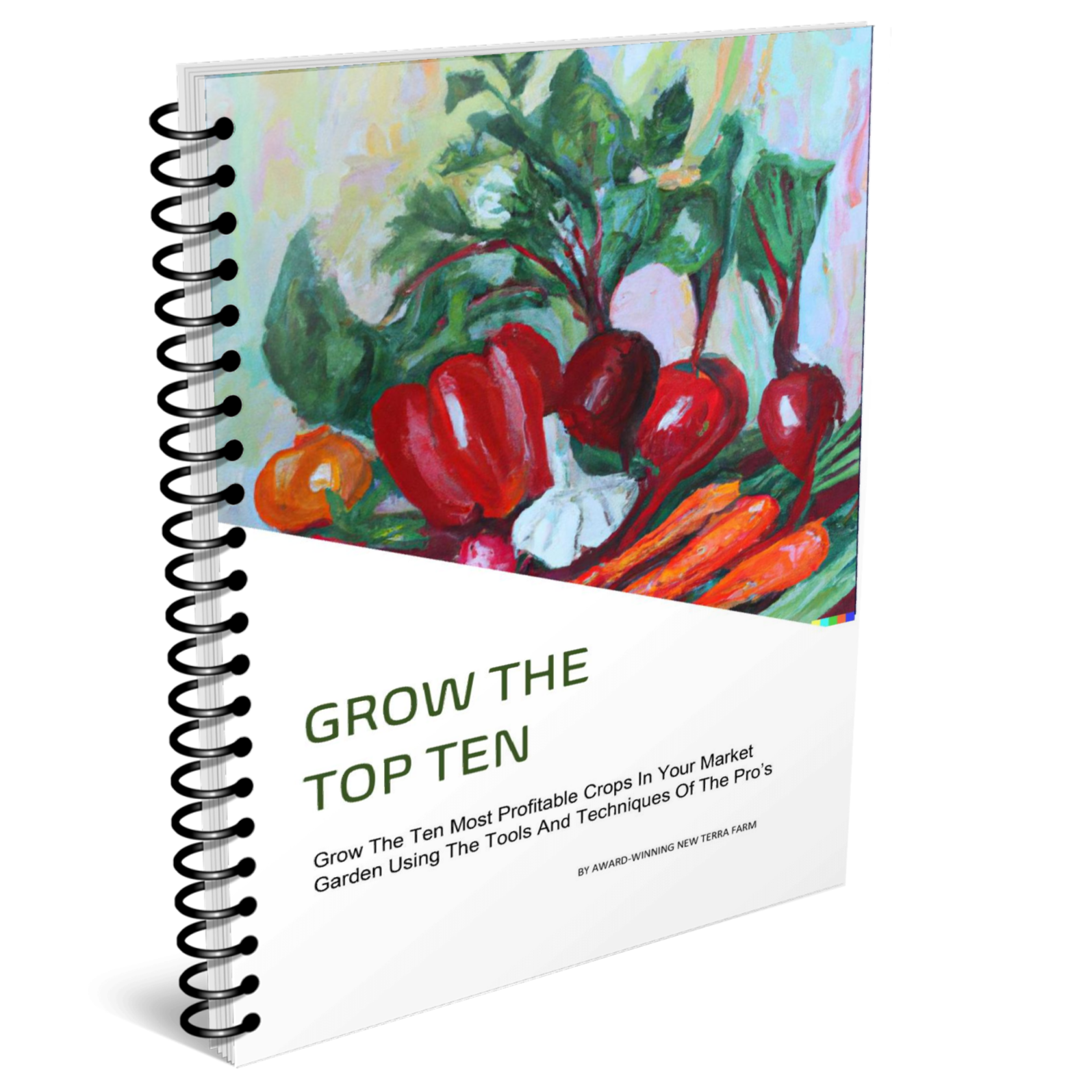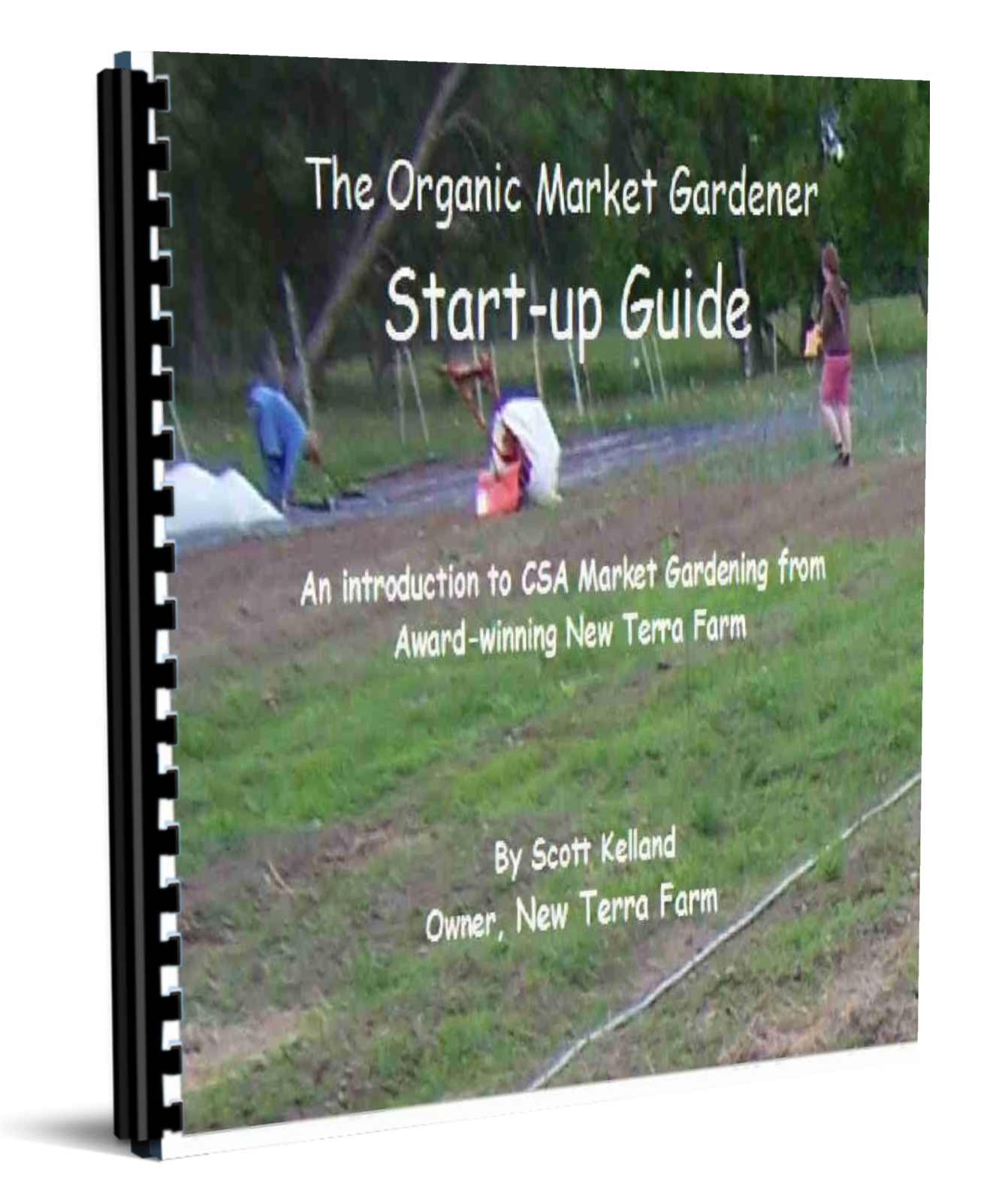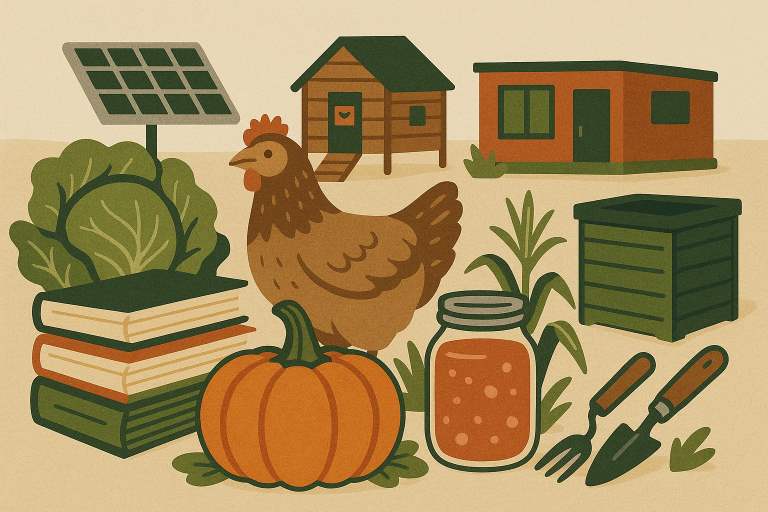How to plan your market garden for continuous harvest
One of the keys to market gardening success is to plan your market garden to yield a continuous harvest of vegetables. You need to know when you can start selling, and how long you can expect your garden to produce.
Here's the factors to consider when developing your market garden plan.
Plan your market garden Step 1: know your growing season. Or perhaps more specifically your harvest season. Figuring this our begins with identify your first and last frost dates. That is, the dates on average for your location when the last frost occurs in the spring, and the first frost in the fall.
There are lots of Internet sites that will give you these dates; here are a couple:
Frost dates Canada and Frost dates U.S.
It's also a good idea to get your seed order in early, sometimes supplies of particularly popular cultivars run short. I recommend SeedsNow (family-owned) and Johnny's Seeds (employee-owned), both have a great selection, good prices and lots of 'grow-how' information on their websites.
Plan your market garden Step 2: days to harvest for each crop. You next need to know how long it takes each crop you plan to yield a harvest. Start with the seed catalogs; most will give you a 'days to maturity' figure to help your planning. Make note if the 'days to maturity' figure refers to direct seeding, or from transplant. Also note average germination times.
Plan your market garden Step 3: average length of harvest period. This is the average length of time over which a crop will produce a yield. This gives you your re-plant interval.
Some examples: beans, beets, broccoli, turnips, lettuce, radishes - replant every two weeks. Cabbage, carrots, onions - replant every three weeks.
Crops with longer harvest periods might be planted only 2 or 3 times throughout the season e.g. tomatoes, peppers, cucumbers squash. Potatoes might have two plantings, one for spring and one for fall.
Plan your market garden Step 4: know the cold hardiness of your plants. To start your earliest crops, you need to know how tolerant they are to frost. This is usually expressed in relation to last frost date.
Here's a sample calculation using broccoli:
- Average days to germination: 5 days
- Average days to maturity from transplant: 50 days
- Optimum age of a transplant: 35 days
- Length of yield/re-plant interval: 14 days
- Cold hardiness: can be planted out up to 4 weeks before last frost (note: its a good idea to protect the earliest plantings with row cover)
So, putting that all together:
5 days germination PLUS 35 days to grow a transplant PLUS 50 days to maturity EQUALS (5+35+50) 90 days to grow a broccoli from seed.
If my last frost date is May 1, and I can put broccoli in the garden 4 weeks before that, that means I can start my first broccoli seeds indoors around the first of March. And I will have broccoli ready for sale 90 days later, around the first of June.
Broccoli yields over about a 2-week period (some plants will mature faster than others) so I will re-plant broccoli every two weeks until 90 days or so before my last frost date. Note that if you protect your plants with row cover, you could push this date by a few weeks.
Do this for all your planned crops, and you will be able to determine a reasonable time to begin selling at your market. This is a fairly large task, and the reason I created my Bootstrap Market Garden Planner.
Carefully Curated Resources For The Homesteader and Prudent Property Owner
The world seems to be a little unsettled these days. I'm always looking for ways to make New Terra Farm more self-sufficient and productive.
Here's a few of the best ways I've found to make self-sufficiency happen. Useful Homesteader Resources
 This tool is included in my Bootstrap Market Gardening Pack
This tool is included in my Bootstrap Market Gardening Pack
New Special Report: "Grow the Top Ten Most Profitable Vegetables".
Grow like the pro's for maximum productivity (and profit)!
Free CSA Market Garden Guide

The consumer demand for fresh local organic food has never been higher. Bad news on the supply chain is good news for local growers.
Get my free Organic Market Gardener Start-up Guide and see if this is the right time to launch your CSA market garden business. Download it here.
Download more Free Reports here
I wrote some books...
Based on 20+ years of gardening and farming experience, I wrote some books that show you practical approaches to gardening and raising small livestock. If you want to fill your freezer and cold storage with your own healthy, nutritious food, and provide some real food security for your family, it might be worth a look here.
I just put together two special book deals:
- If you are a new 'country dweller' or homesteader (or soon to be), check out my Homesteader Book Bundle
- If you have ambitions to start a small mixed organic farm of your own, take a look at my Complete Start Farming Pack
- Home Page ›
- High income Market Garden ›
- Plan Your Market Garden

